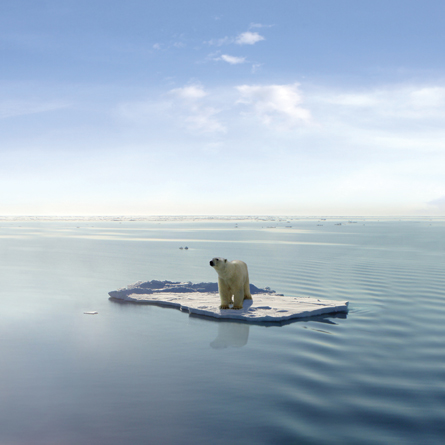Module 1
1. Module 1
1.1. Big Picture
Module 1—Thinking Energy
 Big Picture
Big Picture

© Jan Martin Will /shutterstock
Want to see the North? Canada's northern-most regions are becoming tourism hotspots. Before visiting the Arctic you will want to make sure your visit will not harm the area's delicate ecology. You might consider “going eco” on your next holiday!
Ecotourism—the opportunity to visit and observe natural habitat and wildlife without leaving a negative ecological footprint—is the new rage. Ecotourism encourages the use of sustainable resources and the promotion of sustainable development within the area visited. It also focuses on minimizing the impact of visitors on the wilderness showcased.
Ecotourism can provide for many unique holidays ranging from observing wildlife such as wolves, beluga whales, muskoxen, and caribou; to more energetic pursuits like canoe trips, whale watching in kayaks, travel by komatik, cross-country skiing, snow shoeing, and hiking. Ecotour accommodations vary from tents on the tundra to cozy lodges with gourmet meals.
When planning and delivering ecotours, ecoguides and tour operators must make many logistical decisions including how their tour participants will move around and what fuel will power any vehicles participants use.
In Module 1 you will plan an ecotour of the area in which you live. You will consider how thermodynamics can be applied to the type of equipment you will use and the practices you will follow during your ecotour. In your role as an ecotour operator you will evaluate what priority should be given to energy consumption when making decisions about your ecotour company and society's future.
As you develop a plan for your ecotour, you will consider the unique ecological, geological, or geographic aspects of your part of Alberta. Depending on where you live, you may develop a tour that features the stunning Cypress Hills or Rocky Mountains, the many lakes in the Lac La Biche area, or the many ways to navigate Edmonton's river valley.
Your ecotour planning will tie into the Module 1 Assessment. Read on to learn more about the lessons, activities, and assessments you will complete as you progress through Module 1.
 Assessment in This Module
Assessment in This Module
Each lesson contains a range of activities and assessment options. These include assignments, labs, and Self-Check, Try This, Discuss, Reflect and Connect, and Reflect on the Big Picture activities. Instructions will be provided for each of these activities so that you can appropriately focus your time and effort. Your teacher will tell you which assessment options to complete and which responses to submit for marks or feedback. Remember to save all of your work in your Chemistry 30 folder.
The following are examples of the activities you will complete:
- Choice of Snack Foods (Lesson 2)
- Choice of Sleeping Bag (Lesson 3)
- Recharging Hot Packs (Lesson 4)
- Evaluating Different Fuels (Lesson 5)
- Evaluating Two Liquid Fuels (Lesson 6)
- Reflect on the Big Picture (Lesson 8)
For your Module 1 Assessment, you will submit your responses to your choice of four of the above activities as part of the planning component of your ecotour. You will also develop an advertising brochure to describe and attract tourists to the tour you are providing.
More information about the components of your ecotour plan is provided in the lessons and in the Module Assessment. You may wish to look at the Module Assessment and the Unit Assessment before starting Lesson 1.